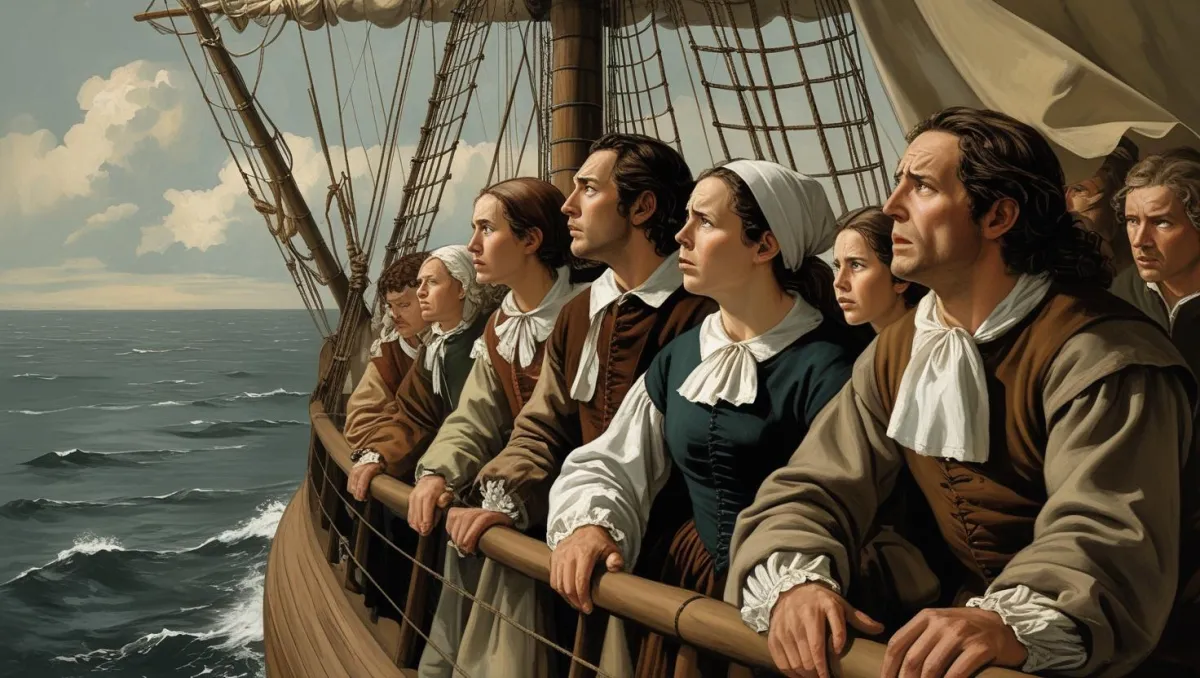WELCOME!
Thank you for contributing to biblical research!
Dive into a world of captivating narratives that transport you to a deeper understanding of the Lord, Jesus Christ. Learning about Christ involves biblical, theological, and practical research; these are essential areas for believers to study to grow in spiritual maturity.

European Immigration to America
Hello,
Have you ever immigrated from another country to the United States? I have not, however, known individuals who have come from a different land. It is interesting to note that as North America was being founded, many religious organizations and missionaries went to the Americas. This discussion board explores the reasons why people migrated from the United Kingdom, France, and other European countries. Additionally, how do these factors impact the church's mission today? Believers can look back into early American Christianity to understand European immigrants' religious motivations for pursuing North America and apply these motivations to missiology today.
The first point is that Believers can look back into early American Christianity to understand European immigrants' religious motivations for pursuing North America. It is interesting to note that various groups were coming to North America.[1] Spain made their way to North America, as a supplement to the Crusades, taking possession and riches for the Catholic church.[2] The Society of Jesus (Jesuits) is contemplative and rigorous in nature. Came over to America as part of missions, having their disposition of suffering related to Jesus Christ as part of their monastic life.[3] The next area focuses on the English and Anglican settlers.
While the Europeans were missional and possessive in nature, those involved in the Reformation pursued distinct reasons for pursuing America. Francis Drake, having fought against the Spanish military, pursued Protestant uniformity among his crew members (services, Bibles, and even the Book of Martyrs).[4] Sir Humphrey Gilbert was extremely ruthless toward the Spanish Armada.[5] Richard Hakluyt, wanting to preach the Gospel to the ends of the earth, settled in the new land because of missionary goals (Acts 1:8).[6] Those involved in the church of England perceived the mindset that traveling to the New World was “A providence of God.”[7] The Christian denomination Methodism came to the New World to bring Anglican members to individual piety.[8] Non-conformist to Catholic and Anglican beliefs, pilgrims sailed to the New World in the Plymouth colony.[9] Thomas Balch adds this about those coming to America, holding Calvinism, among the non-conformists, “It was not without reason that sovereigns considered Calvinism the religion of rebels, and waged so bitter a warfare against it.”[10] Puritans' religious argument for coming to America was to establish a Christian community under their own beliefs, creating a pure church.[11] Simply, Sephardic Jews came over for religious liberty. The following provides an application for twenty-first-century believers today.
The second field involves examining early American Christianity to better understand European immigrants, applying these insights to missiology today. Learning from Spain, the first application is to not take advantage of possessions in the name of the body of Christ. The Jesuits came as missionaries to North America to evangelize and partake in Christ’s suffering (1 Pet. 4:13). This is fascinating reasoning considering their stance amongst Protestants and Catholics.
Another applicable takeaway is to avoid extreme beliefs in every area of values. Drake, for the benefit of the doubt, sought after Protestant beliefs. However, holding these and other tight doctrines also allowed cruelty to others. Gilbert was the manifestation of this subject. Episcopal believers came over, with a formal monastic mentality, though non-conforming to the major Christian denominations at the time. Should they have pursued solidarity in isolation? Or uniformity across the globe?
This third application relates to selfishness and a stubborn mindset toward Christ’s church, forming in diverse ways throughout the world. Evaluate your motives in this endeavor. The fourth application is to be careful about being missional to other brothers and sisters in Christ. An example of the Methodists coming over for ecclesiastical reasons. This can become a good thing or a preference. Missionaries should pray for transforming existing mission work in a country. Missions can also be pursued for liberty, motivated by the Jews. These are fascinating takeaways considering missions in the American church today.
In conclusion, believers can look back into early American Christianity to understand European immigrants through their religious reasons for pursuing North America and apply these reasons to missiology today. My call to action is to pray to the Lord on your motivations for seeking missions before history repeats itself. Have a momentous day!
God bless,
Rockwell
Bibliography
Gaustad, Edwin S, Leigh Eric Schmidt, and Leigh Eric Schmidt. The Religious History of America. Rev. ed. San Francisco: HarperSanFrancisco, 2002.
“Review of Calvinism and American Independence by Thomas Balch.” The Presbyterian Quarterly and Princeton Review, New Series V, no. 17–20 (1876).
[1] Unless otherwise noted, all Scripture is referenced in the King James Version.
[2] Gaustad, Edwin S, Leigh Eric Schmidt, The Religious History of America. Rev. ed. (San Francisco: HarperSanFrancisco, 2002), 16.
[3] Ibid., 24.
[4] Ibi.d, 31.
[5] Ib.id, 32.
[6] Ibid.
[7] I bid 36.
[8] Ibid., 48.
[9] Gaustad, Edwin S, Leigh Eric Schmidt, The Religious History of America. Rev. ed. (San Francisco: HarperSanFrancisco, 2002), 51.
[10] “Review of Calvinism and American Independence by Thomas Balch,” The Presbyterian Quarterly and Princeton Review, New Series V, no. 17–20 (1876): 455–456.
[11] Ibid, 50-53.
[12] Ibid., 72.

